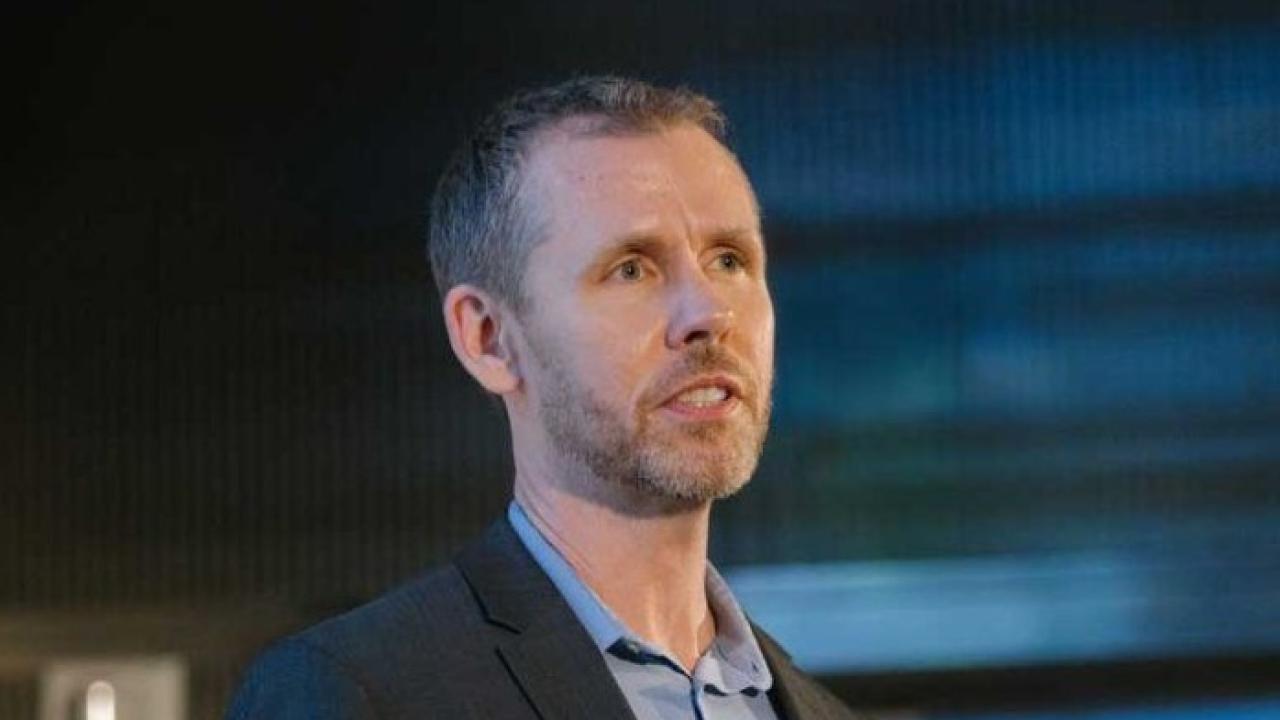
When Martin Kampmann, PhD, set out to explore the workings of the human brain, he was captivated by its greatest mystery: how a network of cells could produce something as intangible as thoughts, emotions, memories, and even consciousness.
This lifelong curiosity, paired with a personal motivation to combat dementia, has shaped a research career at the leading edge of neurodegenerative science. Kampmann shared his compelling journey and dedication to discovering new therapies to treat neurodegenerative diseases in their earliest stages at this year’s annual Byers Award Lecture in May.
“I was motivated to research neurodegenerative diseases because I had experienced how devastating these diseases are through my grandmother, who suffered from dementia,” said Kampmann, the Dorothy Bronson Professor in the Department of Biochemistry and Biophysics and a member of the Institute for Neurodegenerative Diseases. “With a molecular-level understanding of neurodegenerative diseases, my goal is to find new therapies that can intervene and stop these diseases in their tracks.”
Discovery beyond boundaries
At the lecture, UCSF Chancellor Sam Hawgood, the Arthur and Toni Rembe Rock Distinguished Professor, introduced Kampmann’s work as a bold effort to uncover the cellular mysteries of brain health, understand the biological mechanisms that go awry in disease, and ultimately develop safe, effective therapies that could transform patients’ lives.
Chancellor Hawgood also acknowledged Brook Byers, a lifetime member of the UCSF Foundation Board of Directors, his wife, Shawn, and his sons, Blake and Chad, for 30 years of supporting basic science and founding the award, which recognizes science’s role in advancing knowledge, driving innovation, and addressing global challenges.
“The Byers’ unwavering support for basic science has had a profound and lasting impact on UCSF,” Chancellor Hawgood said. “Thanks to their belief in UCSF, the Byers Award has become a cornerstone of our scientific community. It inspires our researchers and fuels bold, world-changing discoveries. For 30 years, this award has celebrated the spirit of innovation and excellence that defines UCSF at its best.”
Hosted by the Sandler Program for Breakthrough Biomedical Research (PBBR), the Byers Award supports outstanding research of mid-career faculty members whose innovative ideas often are deemed too high-risk by the National Institutes of Health and other large funding entities.
Like the Byers Award, PBBR supports curiosity-driven science and has achieved remarkable success. It has generated nearly 4,000 peer-reviewed scientific publications and 127 patents, and has supported almost 1,100 investigators. Recipients of PBBR awards have generated discoveries that have resulted in $1.81 billion in funding for scientific research.
From molecules to the mind
Kampmann’s spirit of fearless exploration is exactly what the Byers Award was created to support. His path to UCSF began in Germany and in Cambridge in the UK, where he studied human biology and biochemistry before pursuing a doctorate at The Rockefeller University. There, he investigated how molecules move between the nucleus and the surrounding space of the cell, establishing the groundwork for understanding how cells function.
His desire to view biology beyond a molecular lens ultimately led him to UCSF for postdoctoral training in the lab of Jonathan Weissman, PhD, who at the time was a professor in the Department of Cellular and Molecular Pharmacology. As a postdoc, Kampmann led the creation of a tool that helps scientists find important human genes involved in specific cell processes and understand how those genes work together in complex networks.